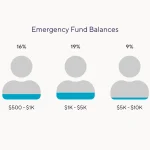
Let’s be honest—managing money can feel like juggling chainsaws. Between budgeting, investing, and avoiding overdraft fees, it’s easy to drop the ball. But here’s the deal: AI is stepping in as your financial safety net. And it’s not just about automation—it’s about smarter, more personalized money moves.
1. AI-Powered Budgeting: Your 24/7 Money Coach
Gone are the days of manually categorizing coffee runs in spreadsheets. AI budgeting apps like Mint or YNAB now:
- Learn your habits—spotting that you always overspend on Uber Eats after 9 PM
- Predict cash flow by analyzing pay cycles and bills
- Nudge you with alerts like “Hey, your grocery spend is 20% higher than last month”
It’s like having a financial therapist who remembers every dollar you’ve ever spent—without the judgment.
2. Fraud Detection That’s Faster Than You Can Say “Chargeback”
Banks now use AI to monitor transactions in real-time. Here’s how it works:
| Old System | AI System |
| Flags transactions over $500 | Notices if you never buy electronics—then blocks a sudden $300 Best Buy charge |
| Takes 48 hours to investigate | Cancels suspicious transactions mid-swipe |
Last year, AI helped reduce credit card fraud losses by 12%—despite rising scam attempts.
3. Investing Without the Analysis Paralysis
Robo-Advisors: The Set-It-and-Forget-It Approach
Platforms like Betterment use AI to:
- Rebalance portfolios automatically when markets shift
- Optimize for tax losses without human error
- Adjust risk tolerance based on life events (like a job change)
Fun fact: Robo-advisors now manage over $1 trillion globally. That’s… a lot of algorithmic trust.
AI Stock Predictions: Crystal Ball or Hot Garbage?
Some hedge funds use AI to analyze satellite images of parking lots (to predict retail sales) or scrape LinkedIn job postings (to gauge company growth). For everyday investors? Tread carefully—AI investing tools work best for data patterns, not lottery tickets.
4. Credit Scores That Actually Make Sense
Traditional credit models ignore things like rent payments or gig income. AI alternatives:
- Experian Boost counts utility bills
- Upstart analyzes education and job history
- Alternative lenders use cash flow patterns instead of FICO scores
Result? A 22-year-old freelancer can now qualify for loans that would’ve been impossible in 2015.
5. The Dark Side: When AI Gets It Wrong
Not all sunshine and algorithms. AI finance tools can:
- Misclassify expenses (No, Hulu isn’t a “utility”)
- Over-optimize investments based on flawed historical data
- Create privacy concerns—your spending habits are very detailed data points
Pro tip: Always keep a human in the loop for big decisions.
Where This Is All Heading
Imagine AI that negotiates your cable bill, spots tax deductions you missed, or warns you about recession risks based on your specific job industry. That’s the near future—not sci-fi.
The real magic? AI isn’t replacing financial advisors… it’s giving you the tools they’ve hoarded for decades.


